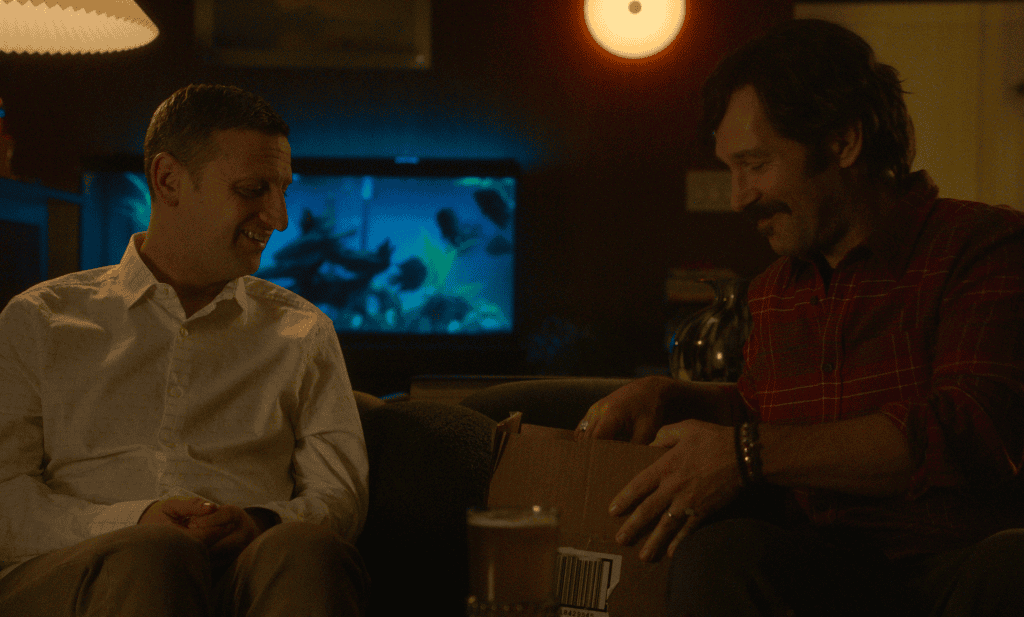Friendship’s marketing banks heavily on Tim Robinson’s rising star, and that’s a wise move. His Netflix show, I Think You Should Leave, is a viral sensation for good reason. After all, you can’t go on social media for long without seeing something from the show. After seeing the film and enjoying the show myself, I’m still left wondering what could have been with a different lead. Yes, Robinson did a fine job with this material. Still, the longer format of Friendship seems to clash with the short-form insanity for which he’s known.
Friendship follows Tim’s Craig Waterman, an isolated family man whose typical way of life is shattered when Austin (Paul Rudd) moves in next door. Originally hitting it off, Austin steps away from the titular friendship once Craig comes on too strong. Unable to take this rejection, Craig bounces from one unhinged move to the next. He is unable to regain his stability and risks his whole way of life in the process.
The above plot description doesn’t sound much like a comedy, and that makes sense. The bones of this movie aren’t very funny. The way Robinson and Rudd get on provides relatable insight into male relationships in the modern age. Even when they’re at odds, you see why these two are spending time together. It’s a realistic tragedy of errors that wouldn’t be out of place in the cringe-inducing sitcoms of twenty years ago. The best laughs come from natural, awkward moments that flow from the main story. Unfortunately, it feels as though Friendship doesn’t expect you to laugh right then and there.

Robinson brings his signature outlandish character work to Friendship. Craig has a bounty of peculiar quirks, just like the show’s best personas. In addition, many later scenes feature Robinson’s trademark over-the-top shouting. However, these attempts at comedy feel like discarded bits from I Think You Should Leave. They don’t fit into the more realistic world the movie sets up, and I was constantly taken out of the movie because of it. I couldn’t buy that human beings would react to Robinson’s antics with anything but a call to the local asylum.
Even the few times where Friendship shifts itself around to give Robinson Netflix-esque setups fall mostly flat. Is it humorous that Craig ends up on a drug trip that is as mundane as the rest of his life? Sure. Still, it’s nothing compared to the material that emerges when Robinson is both behind and in front of the camera.

Writer/Director Andrew DeYoung claims that the role of Craig was written specifically for Tim Robinson. I have no choice but to believe him, but that fact doesn’t gel with what’s on screen. Robinson’s bits clash so hard with the rest of the picture, and it’s hard not to imagine a version of the movie that ups the tension. There’s an edgier version of Craig’s slow descent into madness that I just want to see. Especially since Robinsion does a great job when he isn’t asked to ham it up and instead acts more to the ensemble.
The rest of Friendship’s cast does a great job of existing around Robinson’s varying aura. Paul Rudd feels like he’s riffing on his character from Anchorman in his role, which was a welcome treat. Kate Mara works wonders in the small role of Craig’s suffering wife, Tami, as does Jack Dylan Grazer as the couple’s son. All the parts are there for the interesting black comedy that Friendship’s marketing promised. But, like a missed call from a good buddy, Friendship is a misfire that only hints at its true potential.
Friendship was reviewed in the theater with a ticket purchased by the reviewer.
